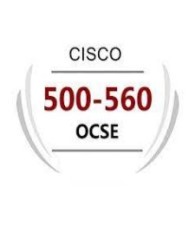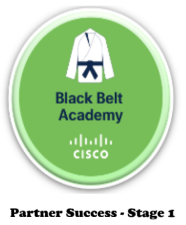In the realm of law enforcement, seamless and secure connectivity is paramount. For decades, NetMotion Wireless has been a cornerstone technology, providing always-on VPN connectivity to patrol cars and other mobile units. However, as technology evolves and security requirements tighten, there’s an emerging need for a more advanced solution. Enter Zscaler Private Access (ZPA), a modern approach that not only matches NetMotion’s reliable connectivity but also offers enhanced security features aligned with zero trust principles.
The Legacy of NetMotion WirelessNetMotion Wireless, developed in the early 2000s, became a lifeline for law enforcement agencies. Its always-on VPN capability ensured that officers could maintain a seamless connection to their systems, even when driving through areas with inconsistent cellular coverage. This persistent connection was critical for accessing real-time information, such as running license plates, without the need for manual reconnections—a common issue with traditional VPNs of that era.
Despite its effectiveness, many law enforcement agencies are now operating on outdated versions of NetMotion. After its acquisition by Absolute Networks and rebranding to Absolute Mobility, these legacy systems might lack current security updates, posing potential vulnerabilities.
The Evolution to Zscaler Private AccessZscaler Private Access (ZPA) emerges as a natural progression from NetMotion, offering similar always-on connectivity while embedding advanced security features. ZPA’s architecture ensures that sessions remain intact, even when officers move through areas with varying connectivity. This seamless reconnection ability is vital for maintaining operational efficiency and security.
One of ZPA’s standout features is its integration with identity providers like Azure and Okta. This integration allows for seamless re-authentication and multi factor authentication (MFA), ensuring that officers can access their systems securely without disruptive logins. This is particularly important as law enforcement agencies strive to comply with the FBI’s Criminal Justice Information System (CJIS) security policy, which mandates advanced authentication measures starting October 2024.
Ensuring Compliance and SecurityThe CJIS security policy’s upcoming mandate for advanced authentication poses a significant challenge for many agencies still relying on traditional VPNs. NetMotion’s built-in MFA solutions have been criticized for their clunky and non-compliant interfaces. In contrast, ZPA offers a streamlined experience, aligning with modern authentication standards and ensuring compliance with minimal friction.
ZPA’s zero trust architecture also reduces security risks by eliminating the need to bring devices directly onto law enforcement networks. Instead, it facilitates secure, inside-out connections through the Zero Trust Exchange, significantly enhancing the security posture of mobile data terminals.
A Smooth Transition PathTransitioning from NetMotion to ZPA can be managed smoothly, ensuring minimal disruption to daily operations. Agencies can deploy ZPA alongside NetMotion, allowing for controlled testing and gradual migration. This approach ensures that officers can become familiar with ZPA without a steep learning curve, leveraging the similar administrative interfaces and always-on capabilities.
For example, in Illinois, the state successfully migrated 12,000 users from NetMotion to ZPA within a matter of weeks. This rapid transition was facilitated by deploying ZPA with their existing Zscaler Client Connector, ensuring that officers could seamlessly switch between the two systems during the testing phase.
ConclusionAs law enforcement agencies navigate the evolving landscape of connectivity and security, Zscaler Private Access stands out as a robust solution. It not only replicates the seamless, always-on connectivity of NetMotion but also introduces advanced security features aligned with zero trust principles. By ensuring compliance with CJIS requirements and offering a smooth transition path, ZPA empowers law enforcement agencies to modernize their operations while maintaining the highest standards of security and efficiency.
For agencies looking to enhance their connectivity solutions, ZPA offers a compelling, future-proof alternative to traditional VPNs, ensuring that law enforcement officers can perform their duties securely and without interruption, regardless of where their mission takes them.
Download this solution brief: Zscaler for Public Safety and Law Enforcement.
[#item_full_content] [[{“value”:”In the realm of law enforcement, seamless and secure connectivity is paramount. For decades, NetMotion Wireless has been a cornerstone technology, providing always-on VPN connectivity to patrol cars and other mobile units. However, as technology evolves and security requirements tighten, there’s an emerging need for a more advanced solution. Enter Zscaler Private Access (ZPA), a modern approach that not only matches NetMotion’s reliable connectivity but also offers enhanced security features aligned with zero trust principles.
The Legacy of NetMotion WirelessNetMotion Wireless, developed in the early 2000s, became a lifeline for law enforcement agencies. Its always-on VPN capability ensured that officers could maintain a seamless connection to their systems, even when driving through areas with inconsistent cellular coverage. This persistent connection was critical for accessing real-time information, such as running license plates, without the need for manual reconnections—a common issue with traditional VPNs of that era.
Despite its effectiveness, many law enforcement agencies are now operating on outdated versions of NetMotion. After its acquisition by Absolute Networks and rebranding to Absolute Mobility, these legacy systems might lack current security updates, posing potential vulnerabilities.
The Evolution to Zscaler Private AccessZscaler Private Access (ZPA) emerges as a natural progression from NetMotion, offering similar always-on connectivity while embedding advanced security features. ZPA’s architecture ensures that sessions remain intact, even when officers move through areas with varying connectivity. This seamless reconnection ability is vital for maintaining operational efficiency and security.
One of ZPA’s standout features is its integration with identity providers like Azure and Okta. This integration allows for seamless re-authentication and multi factor authentication (MFA), ensuring that officers can access their systems securely without disruptive logins. This is particularly important as law enforcement agencies strive to comply with the FBI’s Criminal Justice Information System (CJIS) security policy, which mandates advanced authentication measures starting October 2024.
Ensuring Compliance and SecurityThe CJIS security policy’s upcoming mandate for advanced authentication poses a significant challenge for many agencies still relying on traditional VPNs. NetMotion’s built-in MFA solutions have been criticized for their clunky and non-compliant interfaces. In contrast, ZPA offers a streamlined experience, aligning with modern authentication standards and ensuring compliance with minimal friction.
ZPA’s zero trust architecture also reduces security risks by eliminating the need to bring devices directly onto law enforcement networks. Instead, it facilitates secure, inside-out connections through the Zero Trust Exchange, significantly enhancing the security posture of mobile data terminals.
A Smooth Transition PathTransitioning from NetMotion to ZPA can be managed smoothly, ensuring minimal disruption to daily operations. Agencies can deploy ZPA alongside NetMotion, allowing for controlled testing and gradual migration. This approach ensures that officers can become familiar with ZPA without a steep learning curve, leveraging the similar administrative interfaces and always-on capabilities.
For example, in Illinois, the state successfully migrated 12,000 users from NetMotion to ZPA within a matter of weeks. This rapid transition was facilitated by deploying ZPA with their existing Zscaler Client Connector, ensuring that officers could seamlessly switch between the two systems during the testing phase.
ConclusionAs law enforcement agencies navigate the evolving landscape of connectivity and security, Zscaler Private Access stands out as a robust solution. It not only replicates the seamless, always-on connectivity of NetMotion but also introduces advanced security features aligned with zero trust principles. By ensuring compliance with CJIS requirements and offering a smooth transition path, ZPA empowers law enforcement agencies to modernize their operations while maintaining the highest standards of security and efficiency.
For agencies looking to enhance their connectivity solutions, ZPA offers a compelling, future-proof alternative to traditional VPNs, ensuring that law enforcement officers can perform their duties securely and without interruption, regardless of where their mission takes them.
Download this solution brief: Zscaler for Public Safety and Law Enforcement.”}]]










